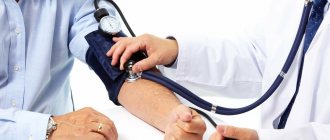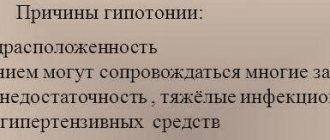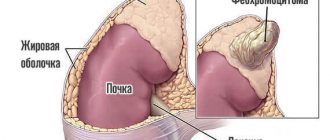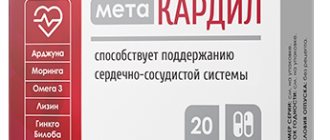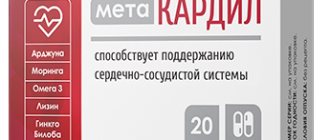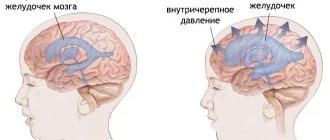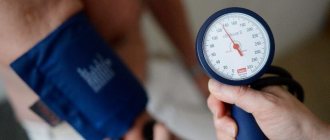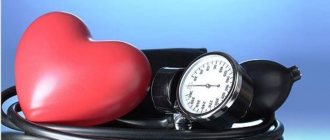How pressure reacts to anxiety
Stressful situations happen in everyone's life. With increased stimulation, the body immediately begins to react, which is manifested by a number of symptoms. Everyone reacts differently to events, and under the same circumstances, one person may be very worried, while another may not show signs of nervous tension.
Can blood pressure increase due to anxiety? Every doctor will answer this question in the affirmative. Stressful situations are considered one of the most common causes of high blood pressure. Even the slightest increase in anxiety in people with unstable mental health can cause a slight deviation. Blood pressure increases in the following situations:
- during public speaking;
- in the process of waiting for events that are important for a given person;
- in communication with strangers;
- conflicts;
- stressful situations.
Deviation from the norm can be determined by the heart rate, which at this moment becomes rapid. An increase in pressure due to excitement is often accompanied by clear symptoms in the form of sweating, redness of the skin, nausea, and a person is often bothered by headaches.
A situation is considered normal when such a phenomenon is observed during a period of nervous excitement, and the indicators return to normal after eliminating the causes of anxiety, calming the person.
Otherwise, you need to worry and consult a doctor to prescribe a course of treatment, since a deviation of up to 10 points indicates a negative impact on all vital systems.
The impact of stressful situations and nervous excitability on blood pressure
Increased blood pressure during stress is easily explained from a physiological point of view. The body perceives the situation as dangerous, and immediate action must be taken. During periods of anxiety and at times of strong feelings, hormonal levels change, nerve impulses in the brain indicate the need to speed up the work of the heart muscle in order to speed up blood flow. A sharp increase in hormonal activity increases heart rate, narrows the lumen of the arteries, and reduces the elasticity of their walls, which contributes to increased blood pressure.
When a person cannot control their nerves, the effects on the blood vessels and heart remain constant, further aggravating the situation. Provoking factors are smoking and drinking alcohol, constant lack of sleep, which increases the negative impact and stress.
The danger is that if a person is constantly in a state of stress, then the work of all organs is imposed on him, literally consuming them.
The nervous system cannot return to normal on its own, so medications are often required.
How to get rid of stress and arterial hypertension
Hypertension and stress are inextricably linked, so it is necessary to treat both ailments. Dr. Shishonin, a leading cardiologist, therapist, head physician of the clinic, candidate of medical sciences, author of his own methods for combating hypertension and diseases of muscles, joints, bones, strongly recommends regular exercises of the cervical spine. Hundreds of patients, performing neck gymnastics, stabilized the state of the cardiovascular system without medications.
What is the effect of gymnastics:
- Stimulation of normal blood circulation;
- Elimination of arterial compression;
- Preventing pinched blood vessels and nerves;
- Restoring neck mobility;
- Cervical muscle massage;
- Kneading salt and fat deposits;
- Improved metabolism.
Dr. Shishonin also advises doing breathing exercises and physical activity. Deep breathing normalizes blood pressure in the vessels, reduces the effects of stress and supplies the necessary oxygen. Sports exercises develop endurance, help get rid of hypertension, transfer the load from the heart to the leg muscles and reduce adrenaline levels.
Nervous hypertension
Increased pressure on the nerves is a separate category of causes of pathological changes. According to statistics, 68% of cases of hypertension develop against a nervous background, when a person cannot control his emotions.
Often hypertension is not nervous, patients are subject to excessive responsibility, emotional, and tend to worry about any reason. This pathology often develops in leaders, rebellious and emotional people who need to contain and contain their emotions within themselves. In any case, internal stress will sooner or later be reflected on the physical level in the form of hypertension.
Nervous hypertension is divided into two types:
- primary - not associated with diseases of the internal organs and is characterized by a constant excess of the pressure value in relation to the norm;
- Secondary - develops as a result of pathological changes in vital systems.
Primary hypertension is characterized by an unstable increase in blood pressure, which may increase slightly. Occasional headaches, palpitations and painful discomfort in the back of the head may occur. In more severe forms, high blood pressure interferes with a person's normal functioning and is often accompanied by dizziness, numbness of the limbs and a rush of blood. A patient with this diagnosis gets tired quickly and has difficulty falling asleep.
Blood pressure readings
- Normal pressure is from 90/60 mm Hg. Art. up to <120/80 mmHg Art.
- Prehypertension (risk factor for the development of arterial hypertension) - 120–129 mm Hg. Art. / <80 mmHg Art.
- Arterial hypertension 1st degree - 130–139 mm Hg. Art. or 80–89 mm Hg. Art.
- Arterial hypertension 2 degrees - ≥140 mm Hg. Art. or ≥90 mm Hg. Art.*
*American Heart Association classification.
Online blood pressure calculator on the NHS website.
American College of Cardiology online cardiovascular risk (stroke, heart attack and other diseases) calculator (risk of complications for patients with high blood pressure over the next 10 years and beyond).
The difference between hypertension and a temporary increase in pressure
Hypertension is characterized by a gradual course of the disease. The first forms of the disease may be asymptomatic, and a person may not suspect the presence of problems for a long time and may not know that blood pressure is elevated. This stage is called “soft” and is characterized by a variation of 160/100.
A transient increase in pressure occurs sporadically, does not persist and decreases with the exclusion of provoking factors. It is easily corrected with medications; often, to normalize the condition, a person just needs to calm down and rest.
Persistent arterial hypertension has been observed for a long time.
After a stressful situation, there is a sharp increase in performance. If you take 3 measurements within 30 minutes that show no improvement and show that the situation is getting worse, you should take immediate action.
What to do with high blood pressure
There are two types of hypertensive crises - both require immediate attention, as they threaten serious complications. It is important to know what to do if you have high blood pressure at home, and how to provide first aid.
If your blood pressure is 180/120 or higher, wait about five minutes and try again. If the second reading is as high and you do not experience any other associated end-organ symptoms such as chest pain, shortness of breath, back pain, numbness or weakness, vision changes or difficulty speaking, it will be considered an uncomplicated hypertensive crisis . Your doctor may simply adjust or add medications, but the condition rarely requires hospitalization.
If your blood pressure is 180/120 or higher, a high pulse with high blood pressure, you are experiencing any other symptoms of end organ damage such as chest pain, shortness of breath, back pain, numbness/weakness, vision changes, or difficulty with a speech, it is important to know what to do. This is a complicated crisis. Don't wait for your blood pressure to drop on its own; call an ambulance.
What to do to be less nervous
Doctors recommend increasing the level of stress resistance in hypersensitive people who are prone to constant unreasonable anxiety. This can be done through special training or consultation with specialists such as a neurologist or psychotherapist. Such people are well influenced by pharmacotherapy and physiotherapy, which help normalize the functioning of the nervous system.
People prone to nervous excitability can resort to the following recommendations.
- You should not plan several important things for one day;
- Learn to focus on what is important and not worry about the little things;
- Plan your day in advance, leaving enough time for unforeseen situations;
- Learn to prioritize, take your time, and understand that 10 minutes won't solve anything in most cases.
In order not to get nervous, it is important to learn to calm down and keep your emotions under control. Such techniques are obtained through relaxation and hypnosis sessions. The latter help to reveal the true causes of human anxiety, which are often hidden deep in the human mind.
Treatment methods
Today there are many methods that can be used to treat and normalize blood pressure. Pharmacological treatment plays an important role; methods of traditional medicine and physiotherapy are used as a supplement. The list of drugs on the pharmacological market is represented by a large assortment, but they cannot be prescribed independently. The course of therapy should be determined by the attending physician based on the results of medical examinations.
Medicines
The doctor gives recommendations on the use of drugs and their dosage. In the first stages of treatment, antihypertensive drugs are not prescribed; recommendations are limited to strengthening the immune and nervous systems, getting more rest and sleep. In the second stage of pathological changes, the use of beta-blockers is indicated.
At the third stage, a complex of antihypertensive drugs may be prescribed. In most cases a combination is used:
- beta-blockers and diuretics;
- ACE inhibitors and calcium antagonists.
If the increase in blood pressure is one-time and caused by stress, taking medications with antihypertensive effects requires a careful approach. Taking the drug can cause a sharp drop in blood pressure, fainting, and hypotensive crisis.
Therapy
The difficulty of therapy is that it is often difficult to determine how a person’s emotional state affects blood pressure. Patients often associate deterioration in well-being with excessive fatigue and poor quality of sleep, meaning already advanced forms of arterial hypertension. To exclude difficult situations, doctors recommend constant monitoring of blood pressure readings.
Traditional therapy has the following goals:
- stopping the process of destruction of blood vessels, preventing possible complications;
- normalization of mental state;
- stabilization of blood pressure.
A good therapeutic effect in combination with medications is shown by physical procedures such as massage and acupuncture, which are used only as prescribed by a doctor.
Folk remedies
In order to normalize the mental state, traditional healers recommend taking herbal infusions and tinctures. A good calming effect can be observed when using sedatives such as thyme, peony, and valerian root.
A good effect of lowering blood pressure is observed when taking chokeberry. For preventive purposes, it is recommended to eat 15 berries per day. For treatment, you need to drink blueberry juice for 15 days.
Content:
- 1 Why does pressure increase from nerves?
- 2 How to distinguish hypertension from a temporary increase in pressure?
- 3 How to reduce blood pressure after stress?
- 4 Treatment methods and list of medications 4.1 Diuretics
- 4.2 Beta blockers
- 4.3 Angiotensin inhibitors
- 4.4 Calcium channel blockers
The main one, so to speak, is adrenaline secreted by the adrenal cortex. It can have a significant effect on blood vessels. The hormone causes them to spasm. This effect is enhanced by glucocorticoids. This is why under stress, blood pressure rises, sometimes to critical levels.
Complications that may occur
A sudden increase in pressure due to excessive stimulation can lead to a hypertensive crisis, which requires urgent hospitalization of the patient. A critical situation occurs when the pressure reaches 210/120. The danger of this situation is associated with the appearance of the following diseases in the body:
- swelling of the airways;
- blows;
- myocardial infarction;
- Cardiac muscle rhythm disturbances.
If symptoms are not relieved in a timely manner, a person may face death. Constant overload of the circulatory system is fraught with many diseases, including failure of the heart muscle, kidneys and liver, and the effect of pressure on the functioning of vital systems can be irreversible.
Prevention of nervous hypertension
Basic preventive measures should be aimed at eliminating the circumstances that provoke increased blood pressure and normalizing the activity of the nervous system. To solve the first problem, it is recommended to learn methods of emotional control and relaxation. After a hard day at work or stress, doctors recommend a mandatory bath, which will wash away all negative emotions from us.
A balanced diet with sufficient minerals and vitamins is essential to keep the body in good shape.
If there is not enough fresh fruit during the cold season, you should turn to vitamin complexes. Fatty, salty and smoked foods and foods with a large amount of preservatives should be excluded from the diet. You should limit your consumption of coffee, strong tea, and blood pressure monitors.
Walking in the fresh air is recommended for people with high blood pressure. Swimming and yoga are very effective. Any physical activity should be dosed and selected taking into account the severity of the disease and the patient’s condition.
↑ Treatment methods and list of medications
When choosing drug treatment methods, you should remember that the drugs have a number of contraindications and side effects. All of them are indicated in the instructions.
↑ Diuretics
Their use is justified because they remove excess fluid from the body. Accordingly, the pressure on the walls of blood vessels decreases. To reduce the likelihood of complications on the heart and blood vessels, sulfonamides are used. But for hypertension caused by stress, their use is inappropriate, since these drugs are too heavy.
In most cases, doctors prescribe potassium-sparing diuretics, which are safer. These medications are better tolerated and do not contribute to the leaching of potassium from the body.
Attention! Sometimes diuretics alone are enough to quickly lower blood pressure.
↑ Beta blockers
Prescribed to prevent stress, which causes high blood pressure. Such medications normalize heart rhythm and myocardial contraction frequency. They have side effects such as cough, dry mouth, runny nose and headache. Their use can provoke a deterioration in the condition of patients with bronchial asthma or bronchitis. That is why such medications are contraindicated for them.
↑ Angiotensin inhibitors
Responsible for blocking the enzyme leading to vasospasm. By reducing the amount of blood reaching the myocardium, the drugs help reduce the load on the muscles. Angiotensin inhibitors combine well with other antihypertensive drugs. Well tolerated by patients.
↑ Calcium channel blockers
Often used for angina pectoris. Relieves vascular spasms. Provide vasodilation and acceleration of heart rate. Able to maintain its effect for two days from the moment of use. Sometimes they cause redness of the face and slight pain in the eyes.
{banner_banner3}
The list of modern drugs for the treatment of high blood pressure includes: Amlodipine, Nicardipine, Riodipine, Nimodipine. These are calcium channel blockers. From the group of angiotensin receptor blockers, a good solution would be to prescribe Telmisartan, Valsartan, Eprosartan.
